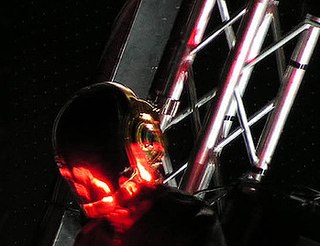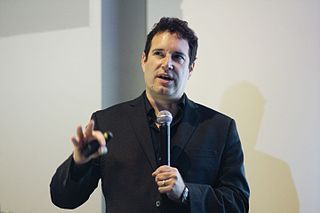A Quote by Graham McTavish
Technology is at the forefront of everything these days - communication, work. Its amazing and scary at the same time how robots have evolved, but I find it hard to believe that robots will completely rule the world. Not in my lifetime anyway.
Related Quotes
The danger of the past was that men became slaves. The danger of the future is that men may become robots. True enough, robots do not rebel. But given man's nature, robots cannot live and remain sane, they become ''Golems',' they will destroy their world and themselves because they cannot stand any longer the boredom of a meaningless life.
So, where are the robots? We've been told for 40 years already that they're coming soon. Very soon they'll be doing everything for us. They'll be cooking, cleaning, buying things, shopping, building. But they aren't here. Meanwhile, we have illegal immigrants doing all the work, but we don't have any robots.


































